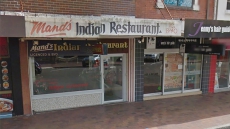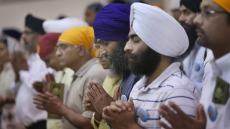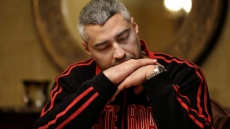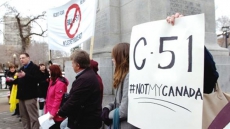The P5+1 group of world powers led by the US have announced a "framework agreement" with Iran limiting its nuclear programme. The agreement outlines major points to be fleshed out in a final deal, the details of which have to be worked out by the end of June this year.
Negotiators in Lausanne, Switzerland, twice extended the talks past the March 31 deadline for a framework because of deep differences between the parties.
The P5+1 group comprised the US, Britain, France, Russia, China plus Germany.
So what exactly did they finally agree to on Thursday? Here are the seven key points, as conveyed by US officials to CNN.
1. Centrifuges --
Iran will have to reduce its total of about 19,000 centrifuges -- 10,000 of which are still spinning today -- down to 6,104 under the deal, with only 5,060 allowed to enrich uranium over the next 10 years. Centrifuges are tube-shaped machines used to enrich uranium, the material necessary for nuclear power -- and nuclear bombs.
2. Uranium enrichment --
Iran's centrifuges will only enrich uranium to 3.67 percent -- enough for civil use to power parts of the country, but not enough to build a nuclear bomb. That agreement lasts 15 years. And Tehran has agreed not to build any new uranium enrichment facilities over that period as well. The 3.67 percent is a major decline, and it follows Iran's move to water down its stockpile of 20 percent enriched uranium last year. In addition, Iran will reduce its current stockpile of 10,000 kg of low-enriched uranium to 300 kg for 15 years.
3. Breakout time --
The period of time that it will take for Iran to acquire the material it needs to make one nuclear weapon, currently assessed at two to three months, would be extended to about one year under the deal. That year-long breakout period will be in place for at least 10 years.
4. Fordow facility --
Iran's Fordow nuclear reactor will stop enriching uranium for at least 15 years. It will not have fissile material at the facility, but it will be able to keep 1,000 centrifuges there. Fordow, one of the country's biggest reactors, is located more than 200 feet under the side of a mountain and was hidden from the international community until the US revealed it in 2009.
5. Research and development --
Iran can continue its research and development on enrichment, but that work will be limited to keeping the country to its breakout time-frame of one year. Though Iran will be required to make changes at a number of its facilities -- including reducing centrifuges and rebuilding a heavy water reactor in Arak -- the country will get to maintain its current facilities.
6. Inspections --
Iran will be required to provide inspectors from the International Atomic Energy Agency, the UN's nuclear watchdog, access to all of its declared facilities so that the agency can ensure there is no potential for military-related developments. That includes access to Parchin, an Iranian military facility related to its nuclear programme. Western countries have been seeking unfettered access throughout Iran, not just declared facilities, as Iran has previously conducted nuclear work in secret.
7. Lifting of sanctions --
The US and the European Union will lift their nuclear-related sanctions on the Iranian economy -- a priority for Iran -- after a UN watchdog verifies it has taken key steps. If there are violations, the sanctions will snap back into place.
UN sanctions will also be lifted when Iran completes its nuclear-related steps, though some peripheral restrictions will be contained in a new Security Council resolution.
International reductions in purchases of Iranian oil and increased isolation of the Middle Eastern country had squeezed its economy in recent years, and the lifting of those sanctions could bring the country major financial rewards.





